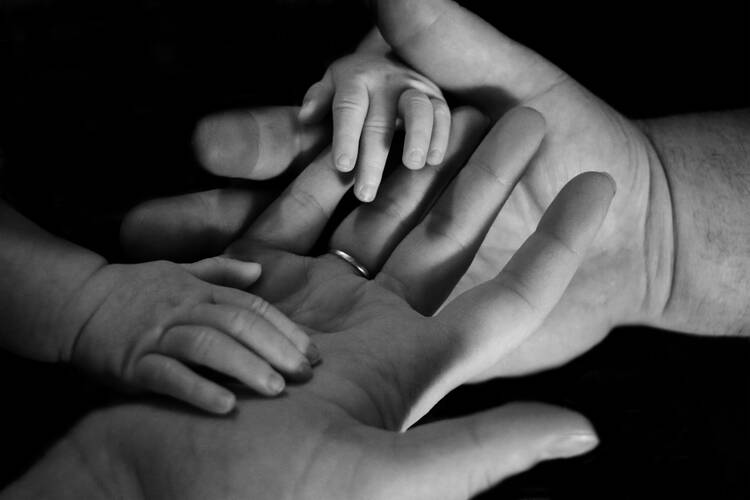A Reflection for Thursday of the Fifth Week in Ordinary Time
Find today’s readings here.
When we hear today’s first reading about Solomon letting his wives worship pagan gods, it might take a minute for the penny to drop.
The first reading starts, “When Solomon was old his wives had turned his heart to strange gods, and his heart was not entirely with the Lord.” We may form a picture of a doddering old man trying to pacify his frisky young wives, only half-aware of what they were up to. We might even imagine that Solomon’’s inclusive ways showed he was open-minded and not overly rigid, because he apparently embraced the multicultural influences in his own family circle.
But the responsorial psalm brings us up short:
“They sacrificed their sons and their daughters to demons. And the LORD grew angry with his people...”
And that is what was happening. The pagan deities named in the first reading are gods whose worship demanded human sacrifice. Archaeologists have found infant burial grounds stuffed with the remains of babies who were burned on their altars. And this is why God was so angry with Solomon: He built those altars.
But God somewhat oddly pronounces,
“I will deprive you of the kingdom and give it to your servant. I will not do this during your lifetime, however, for the sake of your father David; it is your son whom I will deprive. Nor will I take away the whole kingdom. I will leave your son one tribe for the sake of my servant David and of Jerusalem, which I have chosen.”
We are then given the weird story of the Syrophoenician woman who begs Jesus to free her daughter from a demon. Jesus doesn’t want to do it, but the woman harasses him and insists that, even if she isn’t first on his list, she and her daughter are entitled to some scraps of his attention. And Jesus agrees.
These are strange, dramatic stories that I’ve read many times, and usually the thing that stands out is how much we need God and how important it is to be faithful to him, because the alternative is, well, demons.
Today I saw a different emphasis: How the lives and acts and faith of the parents affect their children, for good or for evil.
I don’t believe in generational curses or nutty stuff like that, but I certainly believe that children can be harmed when their parents go astray, and I also believe that children can be protected by their parents’ faithfulness. This seems to be how God works. Just look:
Solomon goes off the rails and abandons his Lord, and as a consequence, real children are sacrificed, and his son is deprived of most of his inheritance. But David was faithful to God, and his child (Solomon), gets some measure of protection, for David’s sake.
The Syrophoenician woman’s daughter somehow became possessed—possibly (I’m speculating) because her mother was involved with some pagan worship that brought her into contact with demons. But then her daughter is also saved, because her mother recognizes who Jesus is, and she sticks with him even after he, startlingly, tries to shoo her away.
The lesson here—at least the one I’m hearing today, as the child of parents and the parent of children—is that what we do matters for more than our own selves. It matters for the people who come next.
We are urged, as modern parents, not to lose ourselves in family life, to preserve our own identity and to tend to our own needs. All good stuff. But just as caring for our own bodies makes us better able to care for our children’s physical needs, caring for our souls makes us better custodians of our children’s souls.
More than that: Fidelity to God is actually the only lasting inheritance we can pass down to our children. So we might ask ourselves as parents and as Solomon apparently never did: What are we passing down? What are we building within the borders of our family? What altars and what kind of worship do we allow in our home, and who will be sacrificed on them?








